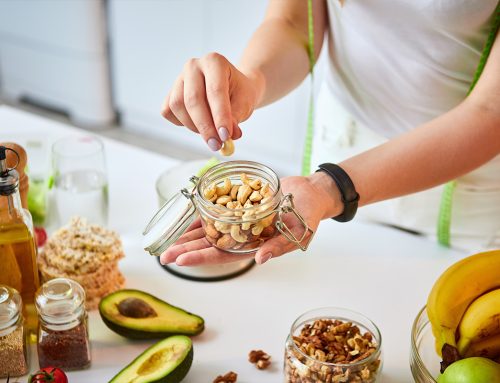When it comes to nourishing the body, the focus often lands on macronutrients—carbohydrates, proteins, and fats—and how these can affect our blood sugar. However, the spotlight shouldn’t overshadow the equally crucial role that micronutrients play in our health.
“Bang for Your Buck” Micronutrients for Blood Sugar Regulation
It’s important to know that there are many micronutrients, such as zinc, vitamin D, magnesium, vitamin B12, and chromium. that play such a large role in diabetes and blood sugar regulation. When consuming foods that are high in these nutrients, there will be health benefits over time. Since the “why” behind consuming adequate amounts of these nutrients is so important, here are some of the top bullet points for each micronutrient listed and its role in blood sugar regulation.
Boost Your Nutrient Intake
Below are five suggestions (plus lots of sunshine!) to start including in your diet today to boost your intake of these health-supporting nutrients and explain why they are so effective at helping improve blood sugar and A1C.
- Magnesium
- Magnesium plays a crucial role in carbohydrate metabolism, and research shows that there is a correlation between the incidence of diabetes and low magnesium.
- Signs of low magnesium can range from muscle cramps to fatigue to anxiety or even depression
- Magnesium can also help promote a solid night’s sleep and enhance rest and recovery.
- Zinc
- This nutrient is probably most well-known for aiding in improving immune function, but it also plays a role in the processing, storing, and secretion of insulin in the pancreas.
- Research shows a correlation between low zinc levels and incidences of diabetic neuropathy and retinopathy.
- Chromium
- This nutrient is an underappreciated nutrient in the world of diabetes and blood sugar regulation. Chromium assists insulin in improving insulin sensitivity.
- Research has shown that those who have been diagnosed with diabetes need higher amounts of chromium than someone without diabetes.
- Vitamin B12
- This is a very popular supplement, and for good reason. There are some diabetes medications that can significantly decrease levels of B12 within the body.
- B12, like chromium, is also vital for energy metabolism—not just for carbohydrates but for proteins and fats as well.
- Vitamin D
- Most people do not get enough vitamin D. Sunshine is the best way to get vitamin D, but there are a few food sources out there.
- Vitamin D plays a role in the body’s cells being sensitive to insulin, meaning the more sensitive the cell is, the less insulin is needed to shuttle the sugar into the cell.
- Unfortunately, in addition to not having enough exposure or intake of vitamin D, obesity is also correlated with a vitamin D deficiency. Vitamin D is a fat-soluble vitamin and tends to “hang out” in fatty tissue rather than being released into the blood to function as it was meant to.
- We highly recommend every individual ask their provider to check their vitamin D levels on a yearly basis to know their baseline and assess if supplementation is needed.
You Have the Power
Embrace the power of these super nutrients to fortify your health and elevate blood sugar management. Start by including magnesium-rich foods like leafy greens, nuts, and seeds; zinc from beans and legumes; chromium in broccoli and whole grains; B12 in shitake or maitake mushrooms or fortified foods; and get your vitamin D from sunlight or dietary sources. Take proactive steps toward a nutrient-rich lifestyle for improved blood sugar wellness.
Sending Health Your Way!
The Tula Clinical Team
Reviewed by:
Aubree RN, BSN
Austin MS, RDN, CSR, LDN, CD
Tula Takeaways |
|---|
| 1. Micronutrients Matter: Beyond macronutrients, micronutrients like zinc, vitamin D, magnesium, vitamin B12, and chromium play crucial roles in blood sugar regulation, contributing significantly to overall health. |
| 2. Boost Your Intake: Incorporating foods rich in magnesium, zinc, chromium, and B12, as well as getting more sunshine, can enhance blood sugar management and contribute to better A1C levels. |
| 3. Vital Roles: Magnesium aids in carbohydrate metabolism and sleep quality, zinc supports insulin processing and immune function, chromium enhances insulin sensitivity, B12 is crucial for energy metabolism, and vitamin D influences insulin sensitivity at the cellular level. |
The LIVE TULA blog is informational and not medical advice. Always consult your doctor for health concerns. LIVE TULA doesn’t endorse specific tests, products, or procedures. Use the information at your own risk and check the last update date. Consult your healthcare provider for personalized advice.






